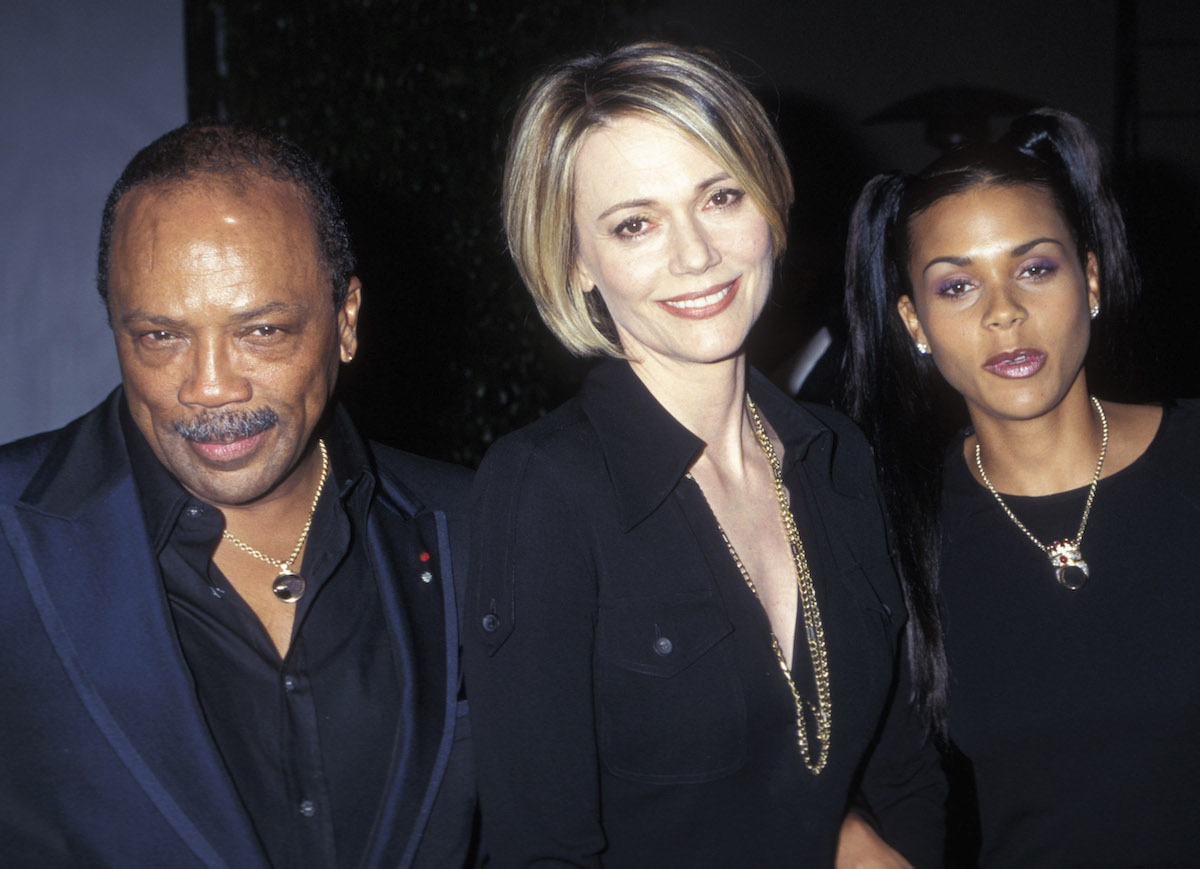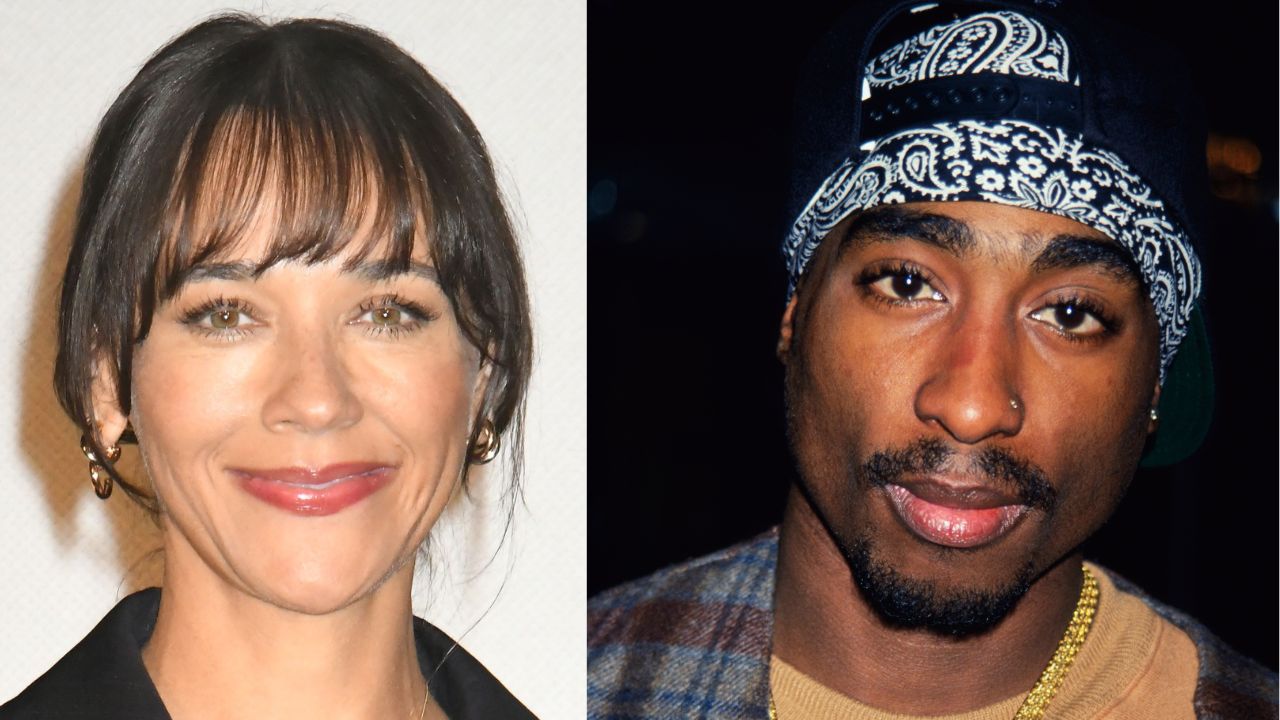Quincy Jones On Tupac: A Comprehensive Analysis Of Their Musical Collaboration And Legacy
Quincy Jones, one of the most iconic music producers of all time, has had a storied career spanning multiple decades. His collaboration with Tupac Shakur remains one of the most intriguing moments in music history. In this article, we will explore Quincy Jones' perspective on Tupac, their collaboration, and its impact on the music industry. This story is not just about two legendary figures but also about how their work transcended boundaries and left a lasting legacy.
Quincy Jones' influence in the music world is undeniable. With a career spanning over seven decades, his work with artists like Michael Jackson, Frank Sinatra, and Ray Charles has set a benchmark for excellence. However, his association with Tupac Shakur added another dimension to his already illustrious career. This collaboration challenged the norms of the music industry and paved the way for future artists to experiment with diverse genres.
This article delves into the relationship between Quincy Jones and Tupac, the music they created together, and the broader implications of their partnership. Whether you're a fan of hip-hop, jazz, or any other genre, this exploration offers valuable insights into the creative process and the lasting impact of these two legends.
Read also:Drew Barrymore Playboy Shots A Comprehensive Look At Her Career And Playboy Moments
Table of Contents
- Biography of Quincy Jones
- Quincy Jones on Tupac: The Collaboration
- Musical Influence and Style
- Impact on the Music Industry
- Legacy of Quincy Jones and Tupac
- Challenges Faced During Collaboration
- Notable Quotes from Quincy Jones on Tupac
- Data and Statistics
- Comparison with Other Artists
- Future Implications for Music
Biography of Quincy Jones
Quincy Delight Jones Jr., born on March 14, 1933, in Chicago, Illinois, is a renowned figure in the world of music. Known for his versatility and innovation, Jones has made significant contributions to jazz, pop, and hip-hop. His career began at a young age, and he quickly rose to prominence as a trumpeter, arranger, and producer.
Early Life and Career
Quincy Jones grew up in a musical household, where his father was a carpenter and his mother had a passion for art. This environment nurtured his love for music. He moved to Seattle at a young age, where he began playing the trumpet and formed a band with his childhood friend, Ray Charles. By the age of 20, Jones had already started working with prominent artists in New York City.
Key Achievements
Throughout his career, Quincy Jones has won 28 Grammy Awards and received an Emmy Award. His work on albums like "Thriller" with Michael Jackson and "We Are the World" remains iconic. Below is a brief summary of his achievements:
- 28 Grammy Awards
- Producer of "Thriller," the best-selling album of all time
- Recipient of the Grammy Legend Award
- Emmy Award winner for "The Color Purple"
Biographical Data
| Full Name | Quincy Delight Jones Jr. |
|---|---|
| Birthdate | March 14, 1933 |
| Birthplace | Chicago, Illinois |
| Occupation | Music Producer, Composer, Arranger |
| Awards | 28 Grammy Awards, Emmy Award |
Quincy Jones on Tupac: The Collaboration
Quincy Jones' collaboration with Tupac Shakur took place during a time when the music industry was undergoing significant changes. The fusion of jazz and hip-hop was a groundbreaking move that challenged traditional music boundaries. Their work together on tracks like "I’m the Greatest" showcased the potential of blending different musical genres.
Key Tracks
One of the most notable collaborations between Quincy Jones and Tupac is the track "I’m the Greatest," which was featured on Quincy's album "Q's Jook Joint." This track combines elements of jazz, funk, and hip-hop, creating a unique sound that resonated with audiences worldwide.
Musical Influence and Style
The collaboration between Quincy Jones and Tupac highlights the influence of jazz on hip-hop. By incorporating jazz elements into hip-hop music, they created a new style that appealed to a broader audience. This fusion of genres not only expanded the musical boundaries but also introduced listeners to the rich history of jazz.
Read also:Santa Cocoa The Ultimate Guide To The Festive Chocolate Delight
Impact on Hip-Hop
The integration of jazz into hip-hop brought a new level of sophistication to the genre. Artists began experimenting with different sounds, leading to the development of new subgenres and styles. This influence can still be seen in modern hip-hop music today.
Impact on the Music Industry
The collaboration between Quincy Jones and Tupac had a profound impact on the music industry. It demonstrated the importance of cross-genre collaborations and encouraged artists to explore new musical landscapes. This partnership also highlighted the potential for veteran artists to work with emerging talents, creating a symbiotic relationship that benefits both parties.
Changing Industry Norms
Quincy Jones' willingness to collaborate with a young hip-hop artist like Tupac challenged the traditional norms of the music industry. It showed that age and genre differences should not be barriers to creativity and innovation. This mindset has influenced many artists to pursue unconventional collaborations.
Legacy of Quincy Jones and Tupac
The legacy of Quincy Jones and Tupac's collaboration extends beyond their music. It represents a moment in history where two influential figures came together to create something extraordinary. Their work continues to inspire artists and listeners alike, serving as a testament to the power of music to transcend boundaries.
Inspiring Future Generations
Quincy Jones and Tupac's collaboration serves as a source of inspiration for aspiring artists. It demonstrates the importance of embracing diversity in music and the value of learning from different genres and styles. This legacy ensures that their work will continue to influence future generations of musicians.
Challenges Faced During Collaboration
Despite the success of their collaboration, Quincy Jones and Tupac faced several challenges during their partnership. These challenges included differences in musical styles, generational gaps, and the pressure of working within a rapidly changing industry. However, their ability to overcome these obstacles highlights their dedication and commitment to their craft.
Overcoming Differences
One of the key challenges in their collaboration was bridging the gap between jazz and hip-hop. Quincy Jones, with his extensive experience in jazz, and Tupac, with his roots in hip-hop, had to find common ground to create music that resonated with both audiences. Their ability to do so is a testament to their skill and adaptability as artists.
Notable Quotes from Quincy Jones on Tupac
Quincy Jones has spoken fondly of his collaboration with Tupac, highlighting the rapper's talent and dedication. Below are some notable quotes from Quincy Jones about Tupac:
- "Tupac was one of the most talented artists I've ever worked with."
- "Our collaboration was a beautiful example of how different genres can come together to create something special."
- "Tupac's passion for music was unmatched, and it was an honor to work with him."
Data and Statistics
The collaboration between Quincy Jones and Tupac has left a significant mark on the music industry. According to Nielsen SoundScan, "Q's Jook Joint," the album featuring their collaboration, sold over 1 million copies worldwide. This success underscores the impact of their partnership and its appeal to a global audience.
Industry Recognition
The collaboration received critical acclaim, with many music critics praising the fusion of jazz and hip-hop. It also earned Quincy Jones a Grammy nomination, further cementing the significance of their work together.
Comparison with Other Artists
When comparing Quincy Jones and Tupac's collaboration to other cross-genre partnerships, their work stands out due to its innovative approach and lasting impact. While other collaborations may have been successful in the short term, the legacy of Quincy Jones and Tupac's partnership continues to influence the music industry today.
Unique Aspects of Their Collaboration
What sets Quincy Jones and Tupac's collaboration apart from others is their ability to blend seemingly disparate genres into a cohesive and compelling sound. This unique approach has inspired countless artists to explore new musical territories and push the boundaries of their respective genres.
Future Implications for Music
The collaboration between Quincy Jones and Tupac has paved the way for future artists to experiment with diverse musical styles. As the music industry continues to evolve, the lessons learned from their partnership can guide aspiring musicians in creating innovative and impactful music.
Encouraging Innovation
By embracing diversity in music and collaborating across genres, artists can create works that resonate with a wide range of audiences. The legacy of Quincy Jones and Tupac serves as a reminder of the power of music to unite people and transcend cultural and generational differences.
Conclusion
In conclusion, the collaboration between Quincy Jones and Tupac Shakur represents a pivotal moment in music history. Their ability to blend jazz and hip-hop into a unique sound has left a lasting legacy that continues to inspire artists and listeners worldwide. This partnership not only challenged traditional music boundaries but also demonstrated the importance of cross-genre collaborations in the music industry.
We invite you to share your thoughts on this article and explore other topics related to music and its impact on society. Your feedback and engagement help us create more content that informs and inspires. Don't forget to check out our other articles for more insights into the world of music!


